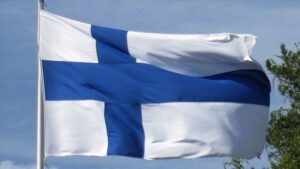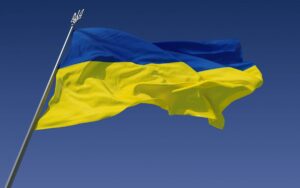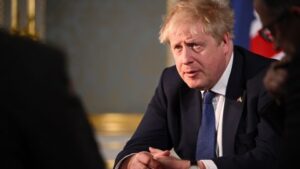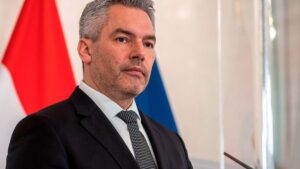
Global demand for steel in 2022 will increase by only 0.4% and amount to 1.84 billion tons (1.834 billion tons in 2021), the World Steel Association predicts.
In 2023, according to WSA expectations, steel demand will increase by 2.2%, to 1.881 billion tons.
The total demand for steel in the Russian Federation, CIS countries and Ukraine this year, according to WSA forecasts, will fall by 23.6% to 44.6 million tons (58.5 million tons in 2021). In 2023, an increase of 1.1% is expected, to 45.1 million tons. At the same time, steel consumption in Russia will fall by 20%, to 35.1 million tons against 43.9 million tons in 2021.
CIS COUNTRIES, DEMAND, RUSSIA, STEEL, WORLD STEEL ASSOCIATION

Finland is ready to tighten sanctions against the Russian Federation in connection with the aggression against Ukraine, Prime Minister Sanna Marin said in an interview with Yle Ykkösaamu.
“Every day people die in Ukraine. We have to make the war stop. We have to be prepared to be flexible in our own daily lives,” she said.
“Finland supports tougher sanctions, including those covering energy policy,” she explained, adding that rising energy prices would not deter sanctions.
“45 days of war is 45 days more than necessary. Russia is waging a dishonorable war, cruel and inhumane, and it must stop,” Marin said.

The Cabinet of Ministers has legally confirmed the decision to terminate trade relations with the Russian Federation, Deputy Prime Minister and Minister of Economy of Ukraine Yulia Svyrydenko has said.
“A very important decision was made. This is a legal confirmation of the actual termination of trade relations with the Russian Federation, which happened on February 24,” Svyrydenko said on the national telethon on Saturday evening following the government meeting.
According to her, such a decision would annually block Russia’s foreign exchange earnings by at least $6 billion.

The UK will increase economic and sanctions pressure on the Russian Federation, in particular, will affect its ability to use its energy resources, said British Prime Minister Boris Johnson
“It is necessary to provide all kinds of support to Ukraine and together with partners we will increase economic pressure, and we will intensify sanctions against Russia every week. We will not be limited to asset freezes or sanctions against oligarchs – we will also affect Russia’s ability to use its energy resources,” Johnson said at a joint press conference with Ukrainian President Volodymyr Zelensky on Saturday in Kyiv.

Austrian Chancellor Karl Nehammer said that Raiffeisen Bank supports sanctions against the Russian Federation and has not invested in the Russian economy since the occupation of Crimea, and the Austrian government does not intend to ignore attempts to circumvent anti-Russian sanctions by anyone.
“Raiffeisen Bank has branches not only in Russia, but also here in Ukraine. Raiffeisen supported our sanctions right away, but we knew from the very beginning, from the time Russia annexed Crimea, that you can’t invest in Russia because it’s risky investments, and there is no support from the Austrian government for Raiffeisen Bank, although it is a very big investor in Ukraine as well. And Raiffeisen Bank itself will try to make efforts to ensure that all sanctions are observed,” Nehammer said at a joint press conference with President of Ukraine Volodymyr Zelensky on Saturday in Kyiv, answering a journalist’s question about the work of Raiffeisen Bank in the Russian Federation.
“In Austria, any attempts to circumvent these sanctions will be punished. We must act with strong, powerful sanctions against Russia. Not only the Austrian Raiffeisen Bank, but also other firms and banks are losing large investments. But the losses that the Austrian economy suffers from sanctions , although they amount to billions of euros, are incomparable with the pain and grief experienced by the Ukrainian people,” the Austrian Chancellor added.
He stressed that Austria will increase sanctions against the Russian Federation until the war is over. “Militarily, we are neutral, but we can never put up with crimes and will help those who suffer from injustice. This means that Austria fully supports the sanctions of the European Union, imposes them on itself, and Austria also supports Ukraine with its capabilities. “What is most needed from Ukraine’s point of view. Within the framework of the European Union, we will further strengthen sanctions until the war is over. And now another package of sanctions has been adopted, and this will not be the last one, with the aim of stopping the war,” Nehammer said. .
According to him, the new package of sanctions will have to be “more powerful and more accurate” – “Russian weapons factories will not receive electronic parts, and without these parts drones will not be able to fly, and weapons will not be able to be used.”
“We will continue on this path, and in the European Union everyone is united, and we will make these sanctions stronger than ever before in the EU. We understand that they are not enough, because people are dying, but we need to these sanctions should be imposed in such a quantity that they are directed against those who cause these sanctions. And all partners in the EU want to stop this war,” the German Chancellor stressed.
He also noted that Austria is making efforts to create effective humanitarian corridors, including for the evacuation of people from Mariupol, Donetsk region, and also promised to support refugees from Ukraine. “There is a lot of solidarity in Austria with those people who were expelled from Ukraine by the war. There is a lot of willingness to help, and this is very common for Austrian society – people want to help and help if they can. I promise that this will not stop,” Nehammer said. .